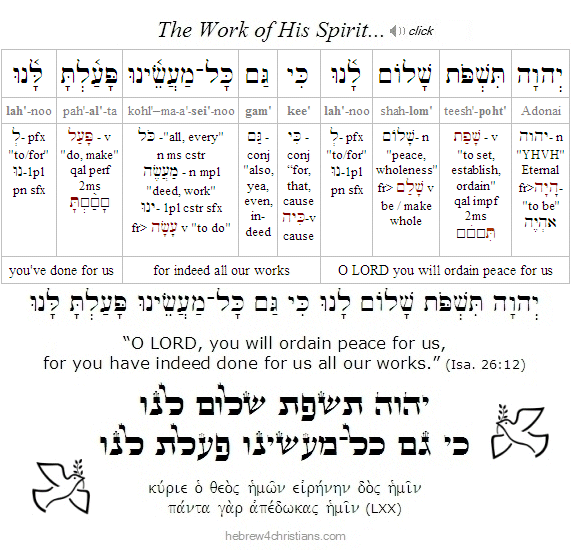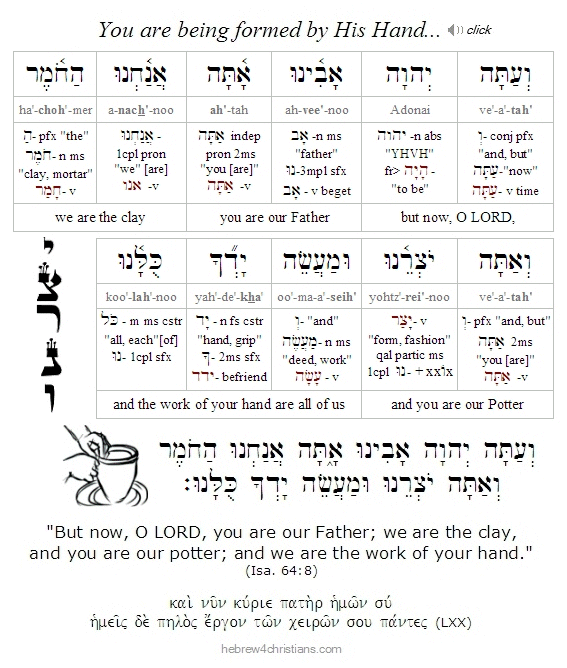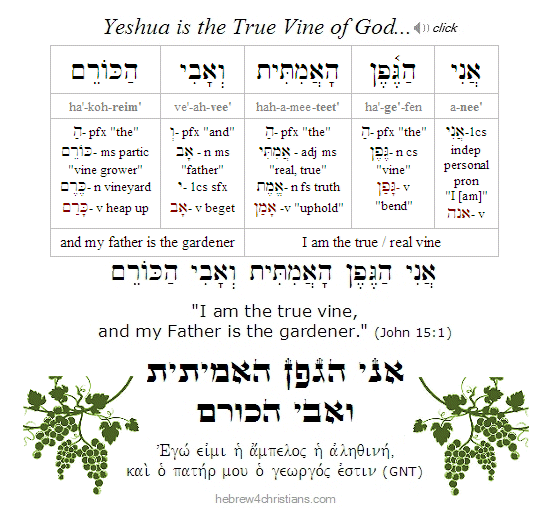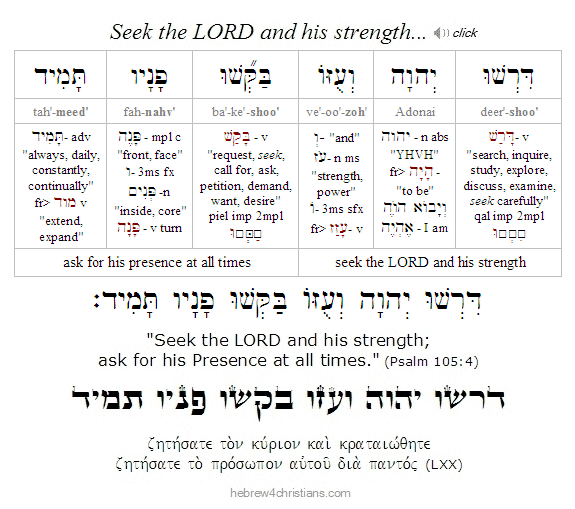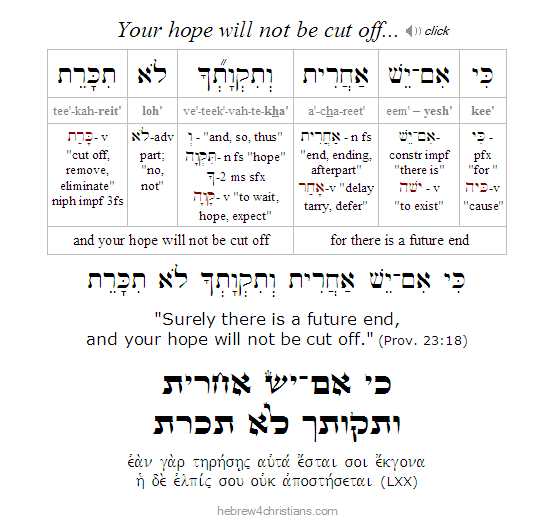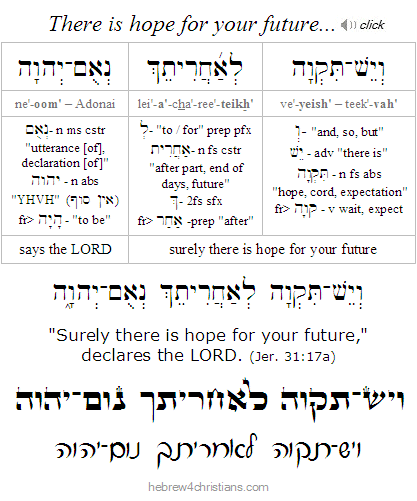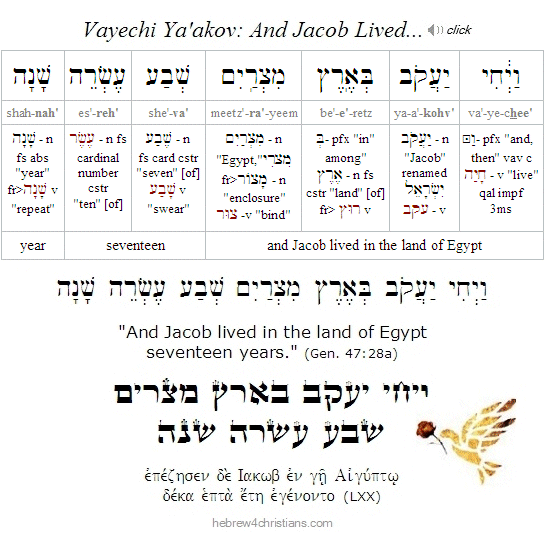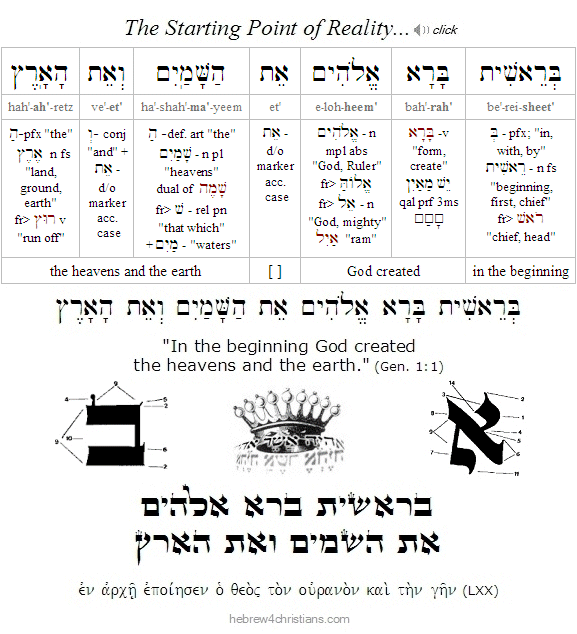|
January 2023 Updates (continued)
Note: If any page content appears to be missing, please refresh the page...
The Shiloh Prophecy...

[ The following is related to our Torah for this week, Parashat Vayechi... ]
01.04.23 (Tevet 11, 5783) When the time came for Jacob (i.e., Israel) to die, he called all his sons together to bless them (Gen. 49:1-28). According to midrash, Jacob wanted to tell his sons about the "End of Days" (אַחֲרִית הַיָּמִים) when the Messiah would come, but was prevented by the Holy Spirit. According to Rashi, God prevented Jacob because He does not want anyone to know the "day or the hour" when the great King of Israel would appear. Jacob did, however, foretell that from the tribe of Judah (יְהוּדָה) would come the Messiah: "The scepter (שֵׁבֶט) will not depart from Judah, nor the ruler's staff from between his feet, until Shiloh (שִׁילוֹ) comes, and to him shall be the obedience (יקְהָה) of the people" (Gen. 49:10). Interestingly, the name "Judah" (יְהוּדָה) is spelled using all the letters of the Name YHVH (יהוה), with the addition of the letter Dalet (ד). Just as the tribe of Judah later was directly stationed in the front of the Mishkan (Tabernacle) in the camp formation in the wilderness, so the Holy Temple (i.e., Moriah) would later become part of Judah's territory in the promised land. Likewise, Yeshua Himself - a descendant of King David - was crucified and resurrected in the land of Judah. Truly the promised "Seed of Judah" represents the "doorway of the LORD" and is rightly named "the One whom his brethren would praise."
Like most prophecies in Scripture, the prophecy of Shiloh has a "dual aspect" or "double fulfillment." Shiloh, or the "King of the Jews" (a synonym for the Messiah, called "Christ" by Gentile Christendom) had indeed come "before the scepter departed from Judah," but he went unrecognized since he came to fulfill the role of the Suffering Servant (Mashiach ben Yosef). The second part of the prophecy, "and to him shall be the obedience of the people," is yet to be fulfilled. It will become a visible reality only after his Second Coming, at the end of olam ha-zeh (this present age), when Yeshua comes to judge the nations (the "sheep and the goats") and establish the Kingdom of God from David's throne in Jerusalem.
Hebrew Lesson
Genesis 49:10 reading (click):
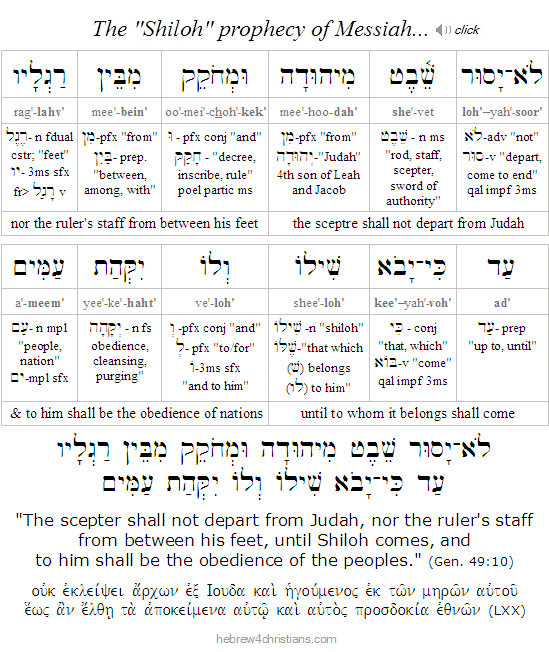 |
For more on this topic, see: "The Promise of Shiloh: Further thoughts on Vayechi."
Fruit in his Season...
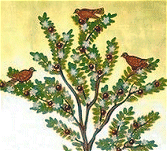
01.04.23 (Tevet 11, 5783) Spiritual fruit does not immediately crop up but requires time and its own season (Psalm 1:3). The process of spiritual growth is mysterious and comes from heaven's creative power, as Yeshua said: "The Kingdom of God (מַלְכוּת הָאֱלהִים) is like someone who spreads seed on the ground. He goes to sleep and gets up, night and day, and the seed sprouts and grows, though he does not know how. By itself (αὐτομάτη, i.e., "automatically") the soil produces a crop, first the stalk, then the head, then the full grain in the head. And when the grain is ripe, he comes in with his sickle because the harvest has come" (Mark 4:26-29). The wonder of faith understands the "ordinary" process of the growth of a seed as genuinely miraculous... With God all things are possible - and that includes the miracle of our newness of life. It is the fruit of the Spirit, after all, and that means that its source and end is found in God's love...
Thank God that spiritual growth is a process, that we are not perfected in a day, otherwise we might die in despair over ourselves... As it is, God helps us endure ourselves, reminding us to lay down and die so that the power hidden in the "seed" can be released (John 12:24).
Hebrew Lesson:
Isaiah 26:12 reading (click):
Faith's "for you" love...
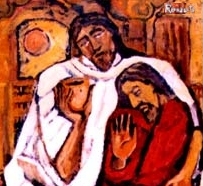
01.04.23 (Tevet 11, 5783) The first "movement" of the heart toward God is expressed in the little word "O," an exclamation of a soul that seeks to be consciously "present" or "visible" before the LORD in the blessing of His audience. "Unto Thee, O LORD, do I lift up my soul..." "O LORD, hear my prayer..." "O LORD my God, in thee do I put my trust." The "O" is the beginning of our prayer, as well as its end, and In truth, we never get past its evocation.
"O" is a reverent word, able to range over the gamut of our emotions. Sometimes we are driven by pain, and the emotional tone of "O" becomes one of lament, of sorrow, or a cry for deliverance. At other times "O's" bespeaks an expression of exultation and praise, or a cry for justice, and so on. But the split second before the word "O" is uttered is what is most essential, because it is the "O" of a holy hush, an "O" of surrender that arises when the soul decides to earnestly call out to God for life...
It is written in our Scriptures: "Now without faith it is impossible to please Him, for the one who approaches God must believe that He exists and that He rewards those who seek him" (Heb. 11:6). So the act of saying "O" to the LORD is an essential decision of faith, a lifting up, or a turning of the heart to reach out to God. Such faith is a faith is the struggle to believe in the unseen presence of the Living God; it is an act of will that chooses to trust that ultimate reality is "for-you" reality, despite the temptation to succumb to fear. The "O" is the bold step of the soul that comes before the Throne of Grace to find remedy for what ails its way.
But faith is a matter of earnestness of heart. As Kierkegaard once said, "Truth is not something you can appropriate easily and quickly. You certainly cannot sleep or dream yourself into the truth. No, you must be tried, do battle, and suffer if you are to acquire truth for yourself." Indeed "faith" that simply conforms or assents with a creedal formula may actually indicate doubt if it refuses to ask searching questions and to struggle through our limitations. Simply attending a religious service and reciting (or assenting to) a prayer may therefore be a temptation against the true life of faith... Alas theology can become an evil if it no longer regards itself as a quest for truth as much as the means of protecting of a self-serving belief system ("O thank you God that I am not like other men"). A living faith realizes that God himself supplies the "O" of the heart quickened by the Holy Spirit...
Faith pours out its heart to God like a child pleading with his father. "O Father! O Daddy!" Doesn't God call you his child? "You are children of the LORD your God" it says in our Scriptures (Deut. 14:1). When you trust God as your Father you are free to "come boldly" before him, sharing your thoughts, desires, feelings, joys, sighs, sorrows, and troubles. "O Abba..."
Hebrew Lesson
Isaiah 64:8 Hebrew reading (click):
Ground of our Spiritual Life...
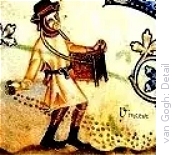
01.03.23 (Tevet 10, 5783) Simply knowing about God is insufficient for a transformed life; something more is needed, namely, receptivity of the heart - a sense of concern, a hunger and a thirst for life, and the willingness to believe in the truth of love. Yeshua taught that the spiritual condition of our heart is revealed by how we hear. Without charity and a deep sense of concern, loss will inevitably occur. He warned us: "Take heed therefore how you hear: for whoever has will be given more, but whoever does not have, even what he thinks he has will be taken from him" (Luke 8:18). Just as "the good eye" (הָעַיִן הַטּוֹבָה) looks for what is good, so "the good ear" (הַאֹזֶן הַטּוֹבָה) listens to the word of hope; and just as "the evil eye" (הָעַיִן הָרָעָה) looks for what is evil, so "the evil ear" (הַאֹזֶן הָרָעָה) attends to the message of loss and despair. We receive what seek. As we inwardly receive the truth of Yeshua, more truth is revealed; but if we resist, untruth will take root and grow...
Yeshua often employed parables (משׁלים), or analogical stories, in his teaching because they simultaneously conceal and reveal spiritual truth. A parable obscures the truth to those who don't really want it, so that "seeing they may not see, and hearing they might not understand" (Luke 8:9-10; Isa. 6:9-10), and yet it reveals truth to the humble of heart. Since Yeshua's whole life was a parable of sorts - a "disguise" that led to the victory of our deliverance (Phil. 2:7) - it is not surprising that he regularly used "figures of speech" to provoke people to examine their own heart condition and the quality of their faith... In this connection note that Yeshua never explained the "mysteries of the kingdom of God" directly to the crowds, nor did He ever pander to the crowd's clamor or interests. God's word is freely "sown" to all, but it is received only by those who are willing to hear. The message is always directed to the individual willing to follow Him -- to the one who has "ears to hear."
For example, the famous "Parable of the Sower" (מָשָׁל לְזוֹרֵעַ; Luke 8:4-8) teaches us that God is like a farmer who sows seed upon the "soil" of the human heart, the quality of which may be hard, shallow, choked, or good:
- A "hard heart" (לֵב קָשְׁה) is likened to impenetrable soil that repels the "seed" of the promise of God (ὁ λόγος τοῦ θεοῦ, Luke 8:11). Because of bitterness, a person can become indifferent and numb inside, and this heart condition enables the devil to snatch the seed of hope from the heart like a ravenous bird (Luke 8:12).
- A "shallow heart" (לֵב רָדוּד) is likened to topsoil that overlays bedrock. At first the soil receives the seed and quickly begins to grow, but since there is no depth of soil, the growth fails to take root and the growth withers for lack of nutrients and moisture. When tested, the shallow heart reveals its lack of commitment and does not persevere (Luke 8:13).
- A "choked heart" (לֵב חָנוּק, or לב חָסוּם) is likened to weedy soil that hides other roots that exhibit "thorns," namely worldly fears, the desire for riches, and the pursuit of comfort or pleasures. Such people are double-minded and their spiritual life becomes obstructed, throttled by busyness, distracted by desires for comfort, security, and worldly vanities. They are full of inner conflict and despair and consequently become stunted in their growth (Luke 8:14).
- Finally, a "good heart" (לב טוב) is likened to tilled and receptive soil that receives the seed to yield an abundant harvest: "yielding thirty, sixty, or a hundredfold." Because the righteous honor the seed and nurture its presence, the hidden power of the Life is powerfully released (Luke 8:15). They are also likened to a tree planted by rivers of living water that bring forth fruit in their season (Psalm 1:3). In this connection it is helpful to remember that fruit does not immediately crop up but requires time and its own season... The process of spiritual growth is ultimately mysterious and divine: "The kingdom of God is like someone who spreads seed on the ground. He goes to sleep and gets up, night and day, and the seed sprouts and grows, though he does not know how. By itself (αὐτομάτη, "automatically") the soil produces a crop, first the stalk, then the head, then the full grain in the head. And when the grain is ripe, he comes in with his sickle because the harvest has come" (Mark 4:26-29). With God all things are possible, and the life of God is a miracle that comes from God's own source of Life. It is the fruit of the Spirit, after all, and not the result of human effort or moral reformation...
So the "parable of the sower" teaches us that how we hear will determine the quality of the ground (or basis) of our spiritual life. If we are honest with ourselves, we will see our own hardness, shallowness, and selfishness in contrast to the fruitfulness marked by the good heart, and this should provoke us to seek God for help... Again, only a new heart (לֵב חָדָשׁ) created by power of God's Spirit can possibly yield the fruit of the Spirit (פְּרִי הָרוּחַ). "Take care then how you hear, for to the one who has, more will be given, and from the one who has not, even what he thinks that he has will be taken away" (Luke 8:18).
Believers are likened to earthen vessels that hold the treasure of God's truth, and therefore they are in constant need of God's grace to persevere. Therefore Yeshua told his disciples: "I am the true vine (הַגֶּפֶן הַאֱמִיתִית), and my Father is the gardener (הַכּוֹרֵם). Every branch in me that does not bear fruit he takes away, and every branch that does bear fruit he prunes, that it may bear more fruit" (John 15:1-2). Note that it is the healthy branch that will be cut back - not the withered one that will be altogether removed – and this purging process may be painful at times. The heavenly Gardener's goal is for the fruitful branch to reveal more and more the connection to the heart of the Vine, so that God is glorified (see John 15:8). The end here is the beatific vision: "Blessed are the pure in heart, for they shall see God" (Matt. 5:8). The goal of "purging" is fruitfulness and blessing, but the agency is not the will of man but the power of God. You are made "clean" through the word of God spoken within your own heart (John 15:3). This is the acceptance of the Messiah's life within you. Your sanctification, however, depends on your communion with God, staying connected to what is real, central, vital, the core truth of God's Presence and love, the ultimate Reality of Life itself.
In light of these things I hope we might better appreciate and understand Yeshua's admonition: "Abide in me, and I in you. As the branch cannot bear fruit by itself, unless it abides in the Vine, neither can you, unless you abide in me. I am the vine; you are the branches. The one who remains in me – and I in him – bears much fruit, because apart from me you can accomplish nothing" (John 15:3-5). Our connection to Yeshua is intended to bear fruit that glorifies God, but if we refuse to find life in him, we will eventually wither and die (John 15:6). We find sustenance and healing only as we remain connected to Messiah who is the Source and Conduit of life (מְקוֹר וְאת הַצִּינוּר שֶׁל חַיִּים), for he alone is the Savior and LORD. True life grows out a heart connection with Him, and without that connection our lives become vain and will yield no eternal significance. Nevertheless we must remain encouraged, friend, since God calls us to Himself. This is "the work of faith." Look to heavenly reality and not to the vanity and deceits of this world (Col. 3:1-4). Find life in connection with Yeshua, drawing strength and vitality from your relationship with Him. The fruit of the Spirit is produced as we open our hearts and yield ourselves to the love and presence of the Lord. May you grow in grace and be fruitful in God's love. Amen.
Hebrew Lesson
John 15:1 reading (click):
Appearance and Reality...
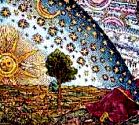
01.02.23 (Tevet 9, 5783) The Hebrew word for "world" or "age" is olam (עוֹלָם), which is derived from a root verb (עָלַם) that means "to conceal" or "to hide." God "hides" His face from us so that we will seek Him, and that means we must press through ambiguity to earnestly take hold of divine truth. Centuries before the time of the philosopher Plato, King David proclaimed that there was a "divided line" between the realm of the temporal world and realm of the hidden and eternal world. The temporal world is finite, subject to change, yet pointed beyond itself to an eternal world, which was the source of real significance, meaning, and life itself (2 Cor. 4:18). Therefore King David said, בַּקְּשׁוּ פָנָיו תָּמִיד/ bakeshu fanav tamid: "Seek His face at all times" (Psalm 105:4). Note that the numerical value for the word "fanav" (i.e., "His face") is the same as that for the word "olam." When we truly seek God's face (i.e., His Presence) we are able to discern the underlying purpose for our lives.
Hebrew Lesson:
Psalm 105:4 Hebrew reading lesson (click):
The ancient Greek version of the Torah (i.e., the "Septuagint" or LXX) translates this verse as, "Seek the LORD and be strengthened; seek His face through everything (διὰ παντός)." Unlike Plato, however, who "saw through" the temporal world and regarded it as less than real, King David understood that how we live within the intersection of these two realms reveals our inner character of faith -- and therefore our ultimate destiny....
Why we Study Torah...

[ "The word of God is always most precious to the man who most lives upon it." - Spurgeon ]
01.02.23 (Tevet 9, 5783) Where is it written, "All Scripture is breathed out by God and profitable for teaching, for reproof, for correction, and for training in righteousness, that the godly one may be complete, equipped for every good work" (2 Tim. 3:16-17), it is to be noted that "the Scriptures" referred to here are the Jewish Scriptures (i.e., the Torah, the Prophets, and the Writings), since they are the foundation, the context, and the overarching matrix for the later New Covenant revelation... These were the Scriptures Yeshua used to contextualize and explain his ministry to his followers: "And beginning with Moses and all the Prophets, he interpreted to them in all the Scriptures the things concerning himself" (Luke 24:27). Indeed when Paul wrote these words to Timothy the "New Testament" Scriptures had not yet been compiled by the leaders of the first-generation followers of Messiah.
How important is the Torah, friends? It is essential as the foundation for all that follows, including the very meaning of the gospel message! In other words, the Torah has both a logical, a linguistic, and a theological priority regarding our understanding of the New Testament, and the failure to read in context invariably leads to faulty interpretations and doctrinal errors of various kinds. "To the Jew first, and [then] to the Greek" (Rom. 1:16) is a principle not only of how the gospel message would transcend ethnic Israel to be offered to all the nations, but also about how we should approach the subject of Biblical hermeneutics. God "breathed out" (θεόπνευστος) his revelation in order, and the message itself must be understood in light of that order (Gal. 4:4-5). Moreover, since all of the New Testament finds its semantic roots in the Torah of Moses and the other Hebrew Scriptures, it is important to study Biblical Hebrew first before studying the Greek New Testament, since the Greek words were translated from the ideas originally given in the Hebrew texts of the Torah.
All of the Torah is amazingly wonderful; it is an inestimably great blessing! After all, what would we know of the creation of the universe and of humanity apart from its pages? What would we know of the reason for sin, sickness and death -- and therefore our need for salvation itself apart from the account of the fall of man as described in Book of Genesis? Or what we know of God's moral truth apart from the revelation of the law at Sinai? Or how could we understand the need for sacrificial blood atonement apart from the sacrificial laws given in Leviticus? Or how would we understand the struggle of the journey of faith apart from the Book of Numbers? Or how would we appreciate the essential duty to love God with all our hearts -- the great Shema -- and the corresponding duty to love others as we love ourselves apart from the Book of Deuteronomy?
So the Torah provides the framework by which we read the Gospels, and apart from this framework we miss much of the original intent and meaning of the Bible... Again, that was Yeshua's approach to the Scriptures, after all. He repeatedly explained to his followers that would have to suffer and die, according to the Scriptures (see Luke 9:22, 9:44; Matt. 16:21; Mark 8:31). He told the disciples on the road of Emmaus: "All things had to be fulfilled, which were written in the law of Moses, and in the prophets, and in the psalms, concerning me (Luke 24:44). Indeed Yeshua chided the rabbis of his day saying: "You search the Scriptures because you think that in them you have eternal life; but it is they that bear witness about me" (John 5:39), and he also said, "If you would have believed Moses, you would believe in me, because he wrote about me" (John 5:46).
So love the Torah, friends; learn its message and study its passages carefully. That's good New Testament theology, after all: "For everything that was written in former times was written for our instruction, so that through endurance and through encouragement of the Scriptures we may have hope" (Rom. 15:4). The Holy Spirit still speaks to the heart of those who love Yeshua, the everlasting King of the Jews: "Oh how I love your Torah (תּוֹרָה); it is my meditation all the day" (Psalm 119:97). For more on this topic, listen to the audio (link below) or read the various articles on Torah here on the Hebrew for Christians website.
Hebrew Podcast
Psalm 119:79 reading (click):
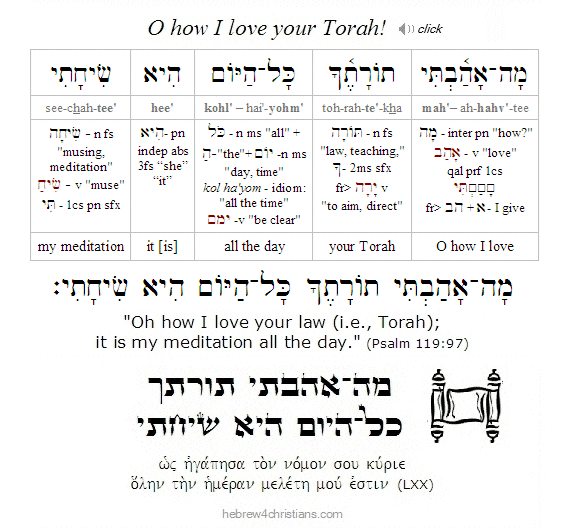 |
A hope not deferred...

01.01.23 (Tevet 8, 5783) From our Torah portion this week (i.e., Vayechi) we recall the testimony of our father Jacob: "The days of the years of my sojourning are 130 years. Few and evil have been the days of the years of my life.." (Gen. 47:9). Note here that Jacob regards "life" in this vale of tears as a time of "sojourning" (מָגוּר) or pilgrimage as he wanders about until he reaches his true homeland, namely "the place" (הַמָּקוֹם) of the Foundations of God's Presence (see Heb. 11:10). As Jacob exclaimed from his deathbed: "For your salvation I have hoped, O LORD" (לִישׁוּעָתְךָ קִוִּיתִי יְהוָה; Gen. 49:18). And to you, dear friend, I plead: press on! "Surely there is a future, and your hope will not be cut off" (Prov. 23:18). Stay strong and focused, chaverim: the hour draws near...
Hebrew Lesson:
Prov. 23:18 Hebrew reading:
Hebrew Lesson:
Jer. 31:17a Hebrew reading:
Vayechi - "And He Lived..."
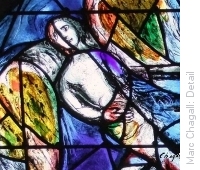
[ Our Torah for this week is Parashat Vayechi, the final portion from the Book of Genesis, which includes Jacob's great prophecy of the coming Messiah... ]
01.01.23 (Tevet 8, 5783) Our Torah reading for this week, parashat Vayechi (i.e., Gen. 47:28-50:26), recounts recounts how the great patriarch Jacob adopted Joseph's two sons (Ephraim and Manasseh) as his own children. When Jacob blessed the boys, however, he intentionally reversed the birth order by putting the younger before the older, signifying that the old struggle he had faced as a child was over, and he now understood things differently. The family had apparently learned that blessing from God is for the good of all, and that there is no real blessing apart from genuine humility that esteems the welfare of others.
Following this, Jacob summoned his sons together to hear his final words of blessing before he died. Of particular importance was Jacob's vision of the coming Messiah, the future King of Israel. It may have been supposed that Reuben, Jacob's firstborn son, would receive the honor of being heir to Messiah, but he was rejected because of his ill-conceived scheme to be regarded as the head of Israel after the death of Rachel, when Reuben "consorted" with Rachel's handmaid Bilhah. This must have been terribly painful to Jacob who was still in mourning over the death of his beloved wife. The betrayal of Bilhah would also have been a crushing blow. So, Reuben was not to be the heir of the promised one. Nor would Simeon, his second son, nor Levi, his third, for they had a history of violence and anger that appalled Jacob over the years - first exhibited when they murdered the Shechemites after their sister had been seduced and violated by a Canaanites prince there (Gen. 34).
When Jacob turned to regard his son Judah, however, he saw the promise of God. Judah, you will recall, had willingly offered up his life to save his brother Benjamin in accordance with his father's will. Because he was willing to die to fulfill his word to his father, Judah was to be praised and his brothers would bow before him. Judah is courageous a lion, willing to die for the sake of honor. Because of this, Judah was chosen be heir to the Messiah himself, the coming one who would exercise dominion over the nations: "The scepter shall not depart from Judah, not the ruler's staff from beneath his feet, until "Shiloh comes" (i.e., he to whom it belongs, namely the Messiah), and "to him shall be the obedience of the nations" (Gen. 49:10). Note that the second part of this prophecy refers to Messiah's coming as "ben David," the great "Lion of the tribe of Judah," who would wash his garments in the blood of God's enemies and subject the nations to the kingship of God (Gen. 49:11-12; Isa. 63:3). After this great declaration of the coming of Messiah, prophecies and blessings were then given over Jacob's other son's, and then Jacob carefully instructed his sons to bury him only in the promised land, and not in the land of Egypt (Gen. 49:10-12; 49:29-32).
Upon Jacob's death, Joseph and his brothers, with various dignitaries of Egypt, formed a funeral procession and returned to Canaan to bury him in the Cave of Machpelah in Hebron. After the funeral, they returned to Egypt, but Joseph's brothers feared that he would now repay them for their former betrayal and threw themselves on his mercy. Joseph reassured them that they had no reason to fear him and reminded them that God had overruled their earlier intent by intending him to be a blessing to the whole world (Gen. 50:20).
The portion ends with the account of the death of Joseph, who made the chiefs of Israel promise to take his bones with them when the LORD would bring them back to the land of Canaan (foreseeing the great Exodus to come). Joseph's faith in the Jewish people's return to the Promised Land is summarized by his statement: "God will surely remember you" (Gen. 50:24). He died at age 110, was embalmed and placed in a coffin in Egypt, full of faith that he would be raised from the dead in the land promised to Abraham, Isaac, and Jacob. Later he was buried in the area of Shechem, the first area of land purchased from the Hittites by Abraham (Gen. 23) that was given to Joseph as an inheritance (Gen. 48:22; Josh 34:22).
Hebrew Lesson:
Genesis 47:28a Hebrew reading lesson (click):
Addendum to Vayechi...
This week we will finish reading the Book of Genesis (סֵפֶר בְּרֵאשִׁית) for the current Jewish year... This incalculably essential book begins with an account of the creation of the universe by the LORD and the creation of man in His image and likeness. Genesis not only explains the origin of life itself but also the origin of death that came about through Adam's transgression, a condition of "spiritual death" that was passed on to Adam and Eve's descendants and that affects the very fabric of creation. The book then reveals the corruption of the first ten generations of humanity that eventually led to divine judgment by means of the worldwide flood (mabbul). From Noah's line, however, would come Abraham who was called by God to become the patriarch through whom the promised Deliverer would come. The remainder of the book focuses on the lives of the three great patriarchs (Abraham, Isaac, and Jacob), and ends with the story of Joseph, Jacob's firstborn son of Rachel, who eventually brought the entire family of Jacob to Egypt to escape famine. This of course set the stage for the great Exodus from Egypt under the leadership of Moses...
The book of Genesis ends with Joseph dying and being put into a coffin in Egypt (Gen. 50:26). Note that the word translated "coffin" is the Hebrew word aron (אֲרוֹן), a word used elsewhere in the Torah to refer exclusively to the Ark of the Covenant (the ark that Noah built and the ark that Moses was placed in are both called "teivah"). Throughout their desert wanderings, then, after the Sinai revelation, the Israelites carried two special arks - one holding the bones of Joseph and the other holding the tablets of the Ten Commandments.
Hebrew Lesson
Genesis 1:1 Hebrew reading (click):
<< Return
|







